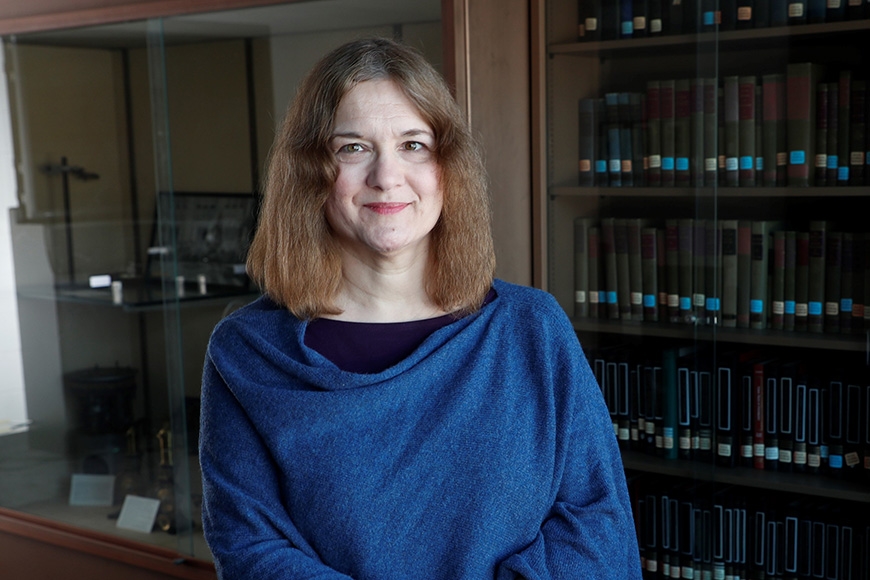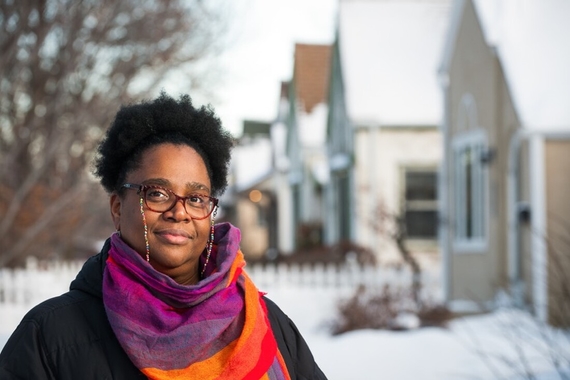Monica Luciana Takes the Long View
When Monica Luciana started college, she expected to be an English major and hoped to pursue fiction writing. “I was intrigued by the people and characters—what motivated them? What made them who they were?” she says.
But as she progressed through her coursework, she realized she could pursue that interest more directly through an entirely different discipline: psychology.
That epiphany didn’t just lead her to a new major—it’s led her to a remarkable research career. Luciana, a Distinguished McKnight University Professor in the Department of Psychology, has authored journal articles in the field’s most prestigious publications, landed multi-million dollar grants from the National Institutes of Health, and taken on leadership roles both within her department and across the University. In May, she was recognized for her achievements with the CLA Dean’s Medal, an award given annually to an outstanding member of the faculty for excellence in scholarship.
Early on, Luciana explored the field widely and enthusiastically. After graduating from Boston College with a psychology degree in 1985, she got a job working at a research lab connected to McLean Hospital, a mental health research and treatment facility near Boston. She went on to get her PhD in clinical psychology at the University of Minnesota. By 1994, she was pursuing postdoctoral work at the University’s Institute of Child Development, and she began her faculty position in the Department of Psychology in 1997.
New Technology Opens New Territory
As an assistant professor, she began using MRI technology to study how neural changes mapped onto behavioral changes during adolescence and beyond—an interest that has fueled the bulk of her career. “In the late 1990s, this was new territory for us, and MRI was a relatively new technology,” she says of the excitement that surrounded the work. “It was a groundbreaking period of time.”
Today, Luciana is particularly interested in the ways that experiences such as drug and alcohol use affect developmental pathways, and how these experiences shape long-range outcomes.
Currently, for example, she’s leading the University of Minnesota site as part of a national consortium study that follows individuals from age nine all the way into young adulthood. She and her team bring study participants into the lab to analyze everything—their cognitive abilities, emotional health, and even MRI scans of their brains. “Through these methods, we’re trying to identify links between brain development, behavioral changes, and life experiences,” she says.
Leadership and Mentorship
While Luciana has been widely recognized for her scholarly work, colleagues and advisees note that she has taken on her other responsibilities with equal seriousness and success.
She served as chair of the psychology department from 2012 to 2018—the first woman to hold the role in the department’s century-long history. Psychology professor Jeff Simpson, the department’s current chair, admires the delicate balance that she struck in supporting a range of different goals within the department. “She’s adept at seeing the big picture, and then making good decisions while considering the many complicated tradeoffs that are involved,” he says.
Her advisees, meanwhile, say they’re never given short shrift. Vanessa Alschuler, a first-year graduate student in the department’s Clinical Science and Psychopathology Research Program, says she’s inspired not just by Luciana’s scholarly accomplishments, but by her holistic approach to mentorship. “From hour-long conversations about how to ‘do winter’—I just moved here from California—to meeting-intensive weekends for a conference I want to attend, Monica never shies away from supporting me in whatever way I need,” she says.
As she looks ahead, Luciana is particularly eager to explore what is changeable and what is not during the course of adolescent development. “A more complete understanding of what is malleable will help us to devise intervention strategies for people who need help,” she says.



